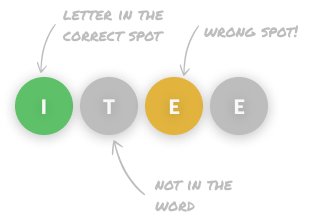Data Science Bookcamp Projects you own this product
- prerequisites
- basic Python and pandas • basic visualization with Matplotlib or Seaborn • basic statistics • basics of machine learning
- skills learned
- simulating real-life game environments in python • using Python fundamentals to set up environments to test hypotheses • using NetworkX to analyze and visualize network datasets
pro $24.99 per month
- access to all Manning books, MEAPs, liveVideos, liveProjects, and audiobooks!
- choose one free eBook per month to keep
- exclusive 50% discount on all purchases
lite $19.99 per month
- access to all Manning books, including MEAPs!
team
5, 10 or 20 seats+ for your team - learn more

Are you ready to work out with the Data Science Bookcamp? This series of liveProjects takes you hands-on with fun and engaging data science challenges from the bestselling book by Leonard Apeltsin. It features Discovering Disease Outbreaks from News Headlines, which he co-created with Will Koehrsen, Nate George’s Decoding Data Science Job Postings to Improve Your Resume, and three original projects by Emre Rencberoglu. Each challenge stretches your data science muscles and teaches you useful new skills through practice, such as using NumPy and SciPy for mathematical operations, clustering with scikit-learn, and analyzing and visualizing network datasets with NetworkX. Tackle them individually or all of them for an intensive workout of your data capabilities!
here's what's included



In this liveProject, you’ll stretch your Python data science skills by building a simulator for popular Blackjack variant game 21. You’ll design your simulation step-by-step, then use visualization techniques to interpret your findings. By the end of your project, you’ll have a winning strategy for playing card games and new skills with fundamental Python libraries like NumPy and SciPy.

In this liveProject, you’ll build a fun (and useful!) data analysis tool that can determine which day of the week is the best to Tweet. You’ll test the hypothesis that Friday is the best day for engagement by calculating the p-variables and interpreting the results. You’ll utilize common techniques such as the permutation test and bonferroni correction to see if your hypothesis is accurate—essential skills for any data scientist.

In this liveProject, you’ll turn your data science skills to analyzing an OTC network dataset scraped from bitcoin users in order to establish the most (and least!) trustworthy users. You’ll analyze a provided graph dataset, visualize it, generate features, and then create user clusters. You’ll start out by reading and examining the trust network dataset in Python, then create and interpret user clusters, and finally visualize the nodes and edges of the network dataset. This fast and engaging data science project will stretch your skills and build your knowledge of clustering.

choose your plan
team
- five seats for your team
- access to all Manning books, MEAPs, liveVideos, liveProjects, and audiobooks!
- choose another free product every time you renew
- choose twelve free products per year
- exclusive 50% discount on all purchases
-
![]() Data Science Bookcamp Projects project for free
Data Science Bookcamp Projects project for free
Prerequisites
These liveProjects are for intermediate Python programmers who want to improve their data science skills. To begin these liveProjects you will need to be familiar with the following:
TOOLS
- Intermediate Python loops: for, while, do-while; conditional statements: if, if/else, switches
- Basic Python data structures: dictionaries, lists, arrays; Python functions
- Basic pandas: dataframes, transformations
- Basic visualization with Matplotlib or seaborn
- Basic Python scripting with an IDE or notebook
- Basic scikit-learn
- Basic Jupyter Notebook
- Basic statistics: mean, median, distributions
- Basic machine learning: (K-means and DBSCAN clustering)
- Basic text extraction with tf-idf
you will learn
In this liveProject, you’ll work out your Python data science skills and develop an important understanding of common data science and statistics techniques, such as:
- Simulating real-life game environments in Python
- Calculating the statistical confidence intervals
- Permutation test for calculating p-values
- NumPy and SciPy for mathematical operations
- Matplotlib and seaborn to visualize results
- Python fundamentals to set up an analysis environment
- Using pandas for data operations
- Using scikit-learn for clustering
- Using NetworkX to analyze and visualize network datasets
- Extracting city and country name data from text using regular expressions
- Manipulating data and matching location names to geographic coordinates
- Visualizing clusters on a geographic map
- Analyzing algorithm output and tuning model settings to improve results
- Sorting between clusters based on size and within clusters based on distance
- Interpreting algorithm results in the problem domain
- Summarizing findings of a data science project effectively
- Parsing HTML web pages with the BeautifulSoup library
- Storing and processing data with pandas DataFrames
- Converting raw text to numeric features with the scikit-learn library
- Creating word clouds with the WordCloud library for text cluster visualization
 features
features
- Self-paced
- You choose the schedule and decide how much time to invest as you build your project.
- Project roadmap
- Each project is divided into several achievable steps.
- Get Help
- While within the liveProject platform, get help from other participants and our expert mentors.
- Compare with others
- For each step, compare your deliverable to the solutions by the author and other participants.
- book resources
- Get full access to select books for 90 days. Permanent access to excerpts from Manning products are also included, as well as references to other resources.

 Data Science Bookcamp Projects project for free
Data Science Bookcamp Projects project for free
